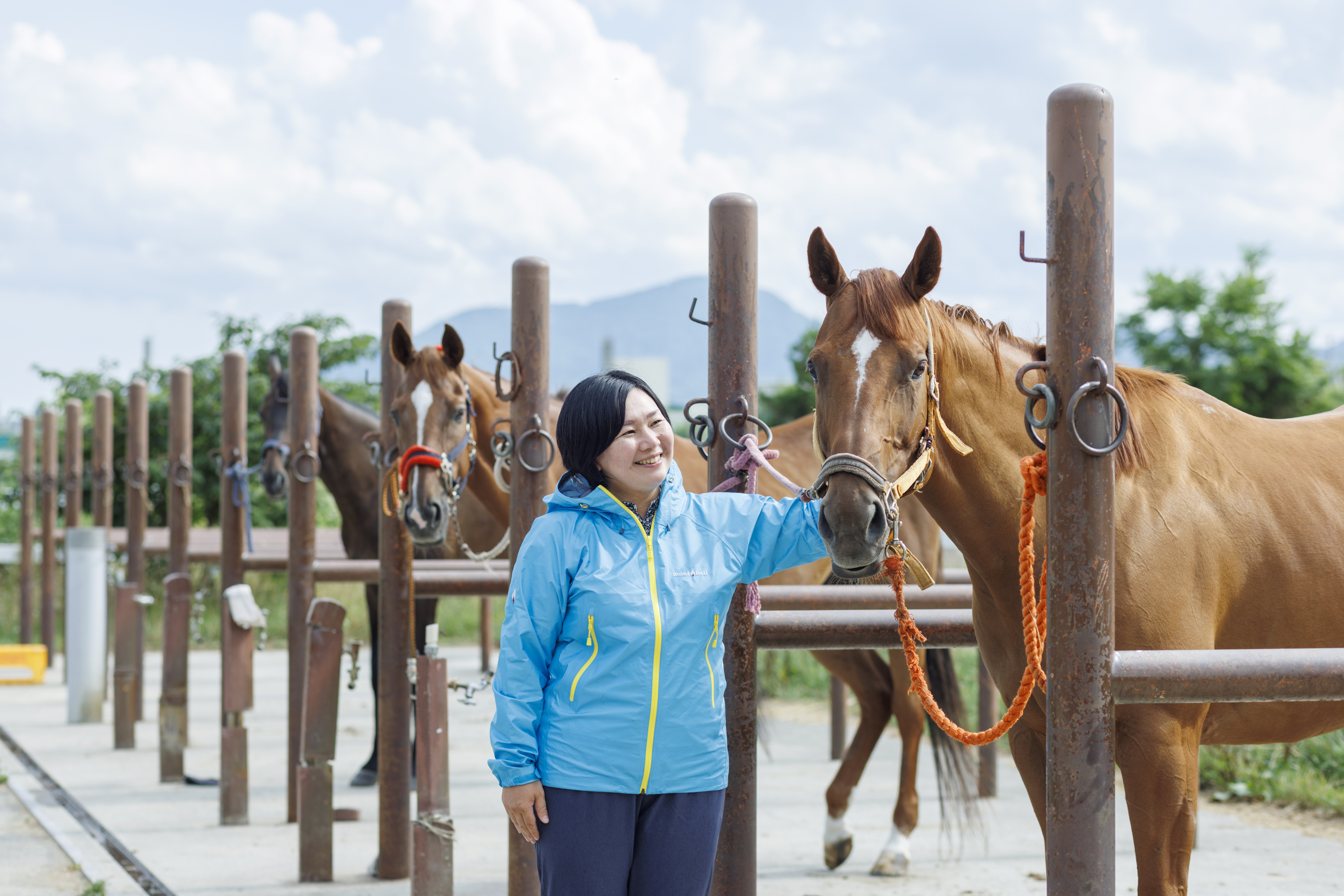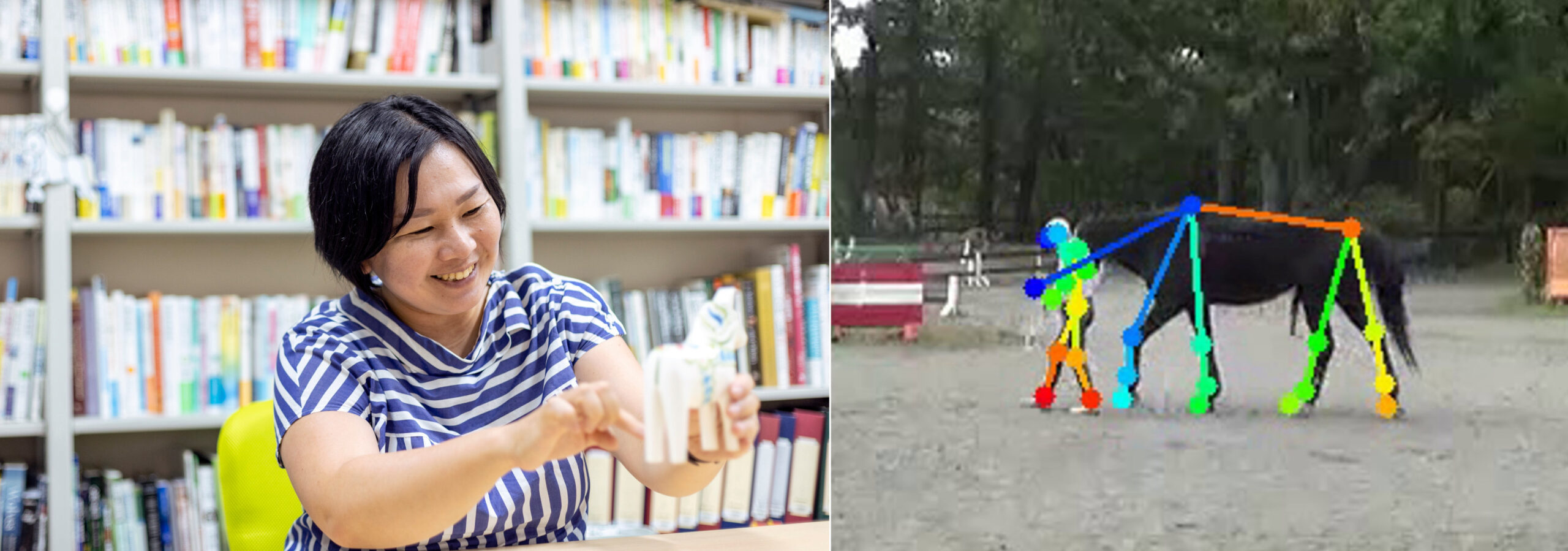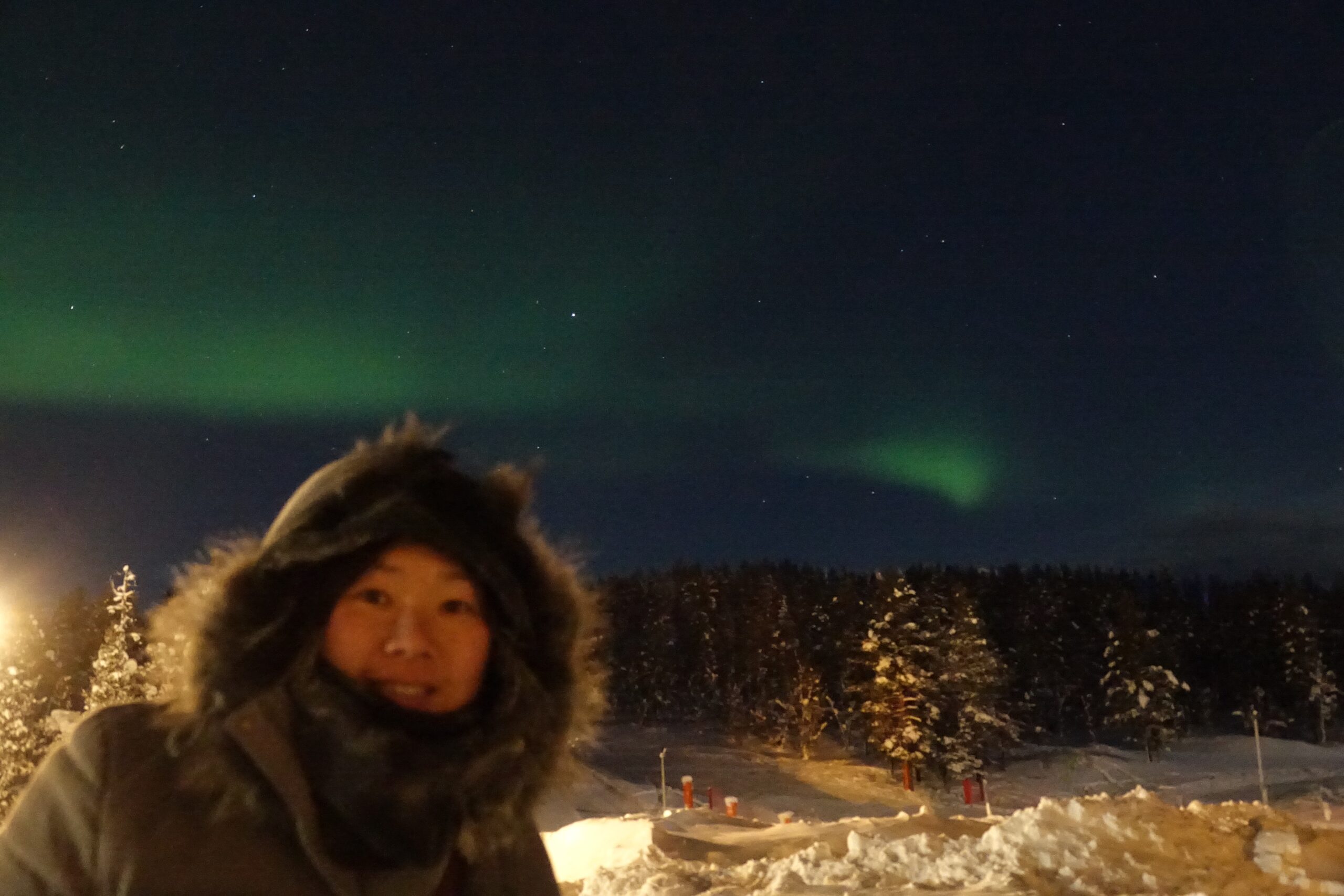This article was published in the Spring 2023 issue of Litterae Populi. The full issue can be found here.

Associate Professor Ayaka Takimoto, Laboratory of Behavioral Science, Research Group of Behavioral Science, Division of Human Sciences, Faculty of Humanities and Human Sciences, Hokkaido University
Associate Professor Ayaka Takimoto, a Doctor of Literature specializing in comparative cognitive science, completed the doctoral course of the Graduate School of Letters, Kyoto University. After working as a special research fellow of the Japan Society for the Promotion of Science (PD: Graduate School of Arts and Sciences, The University of Tokyo), she became an associate professor at the Graduate School of Letters, Hokkaido University in 2015. She was appointed to her current position in 2019.
Wishing to understand what animals think-Encounter with animal psychology
Comparative cognitive science is an academic field that elucidates the evolutionary processes of cognitive functions by studying such functions in various animals, including humans. This field emerged between the late 1980s and early 1990s based on animal psychology and ethology. Representative cognitive science research methods include the study of animal's natural and trained behavior. The former can be divided into natural observation and recording of natural behavior of the subject, and experimental observation of animals' natural responses to experimental procedures (stimulus presentation). The latter involves an experimental analysis method to analyze the thinking of a variety of animals in detail. Associate Professor Ayaka Takimoto of the Faculty of Humanities and Human Sciences focuses on the horse, a domestic animal that is genetically far removed yet spatially close to humans. She is currently conducting research based on comparative cognitive science, by combining the above methods for the status and evolution of psychology supporting the formation of ties between horses and between horses and humans.
"According to my parents, I spent a very long time observing zoo animals when I was little. My younger brother and sister wanted to move on to the next animal quickly, but I would remain standing in front of the same animal. When we went to a farm, I had no trouble riding a horse although my brother and sister were afraid of horses. It seems that I was a child with a strong interest in animals," says Associate Professor Takimoto from Wakayama. After graduating from Kindai University Wakayama High School, she entered the Faculty of Letters, Kyoto University. She joined the University's equestrian club immediately after enrollment. "I had lost interest in animals when I was in elementary, junior high and high school, but my interest in animals from childhood came back to me when I joined the club. During my contact with horses almost every day, I became interested in what they were thinking and what I should do to give them instructions in an easily understandable manner."
Associate Professor Takimoto says that she became interested in research on animal psychology because she wanted to have a better relationship with horses in the equestrian club. She talked about how she decided to conduct comparative cognitive science research. "When I was in my first year, I saw a fourth-year student who belonged to the comparative cognitive science laboratory studying in the equestrian club during the summer vacation, to write their thesis. That's how I found out about the research field. Then in my second year, I met Professor Kazuo Fujita, who was teaching comparative cognition science classes in the animal psychology course of the Faculty of Letters. It was the start of my involvement in research in this field."

Visualizing the results of image analysis tracking walks by a human and a horse to elucidate the mechanism of human-horse walking synchronization (created by Eriko Ueda).
Unraveling what horses think
Associate Professor Takimoto, who joined the comparative cognition science laboratory led by Professor Fujita, engaged in experiments on cooperative behavior (e.g., reward allocation) between individuals of the same species, using the tufted capuchin monkey, a primate that is genetically close to the human, to study the evolution process of cooperation between animals, including humans. "I was interested in the thinking of animals, but I also wanted to do work that would benefit society," says Takimoto. During her first year in the master's program, she was impressed by a lecture by British ethologist Jane Goodall, who suggested that there are ways to conduct research while contributing to the community, and she decided to become a researcher. After completing the master's and doctoral programs at the Graduate School of Letters, Kyoto University, and working as a Research Fellow of the Japan Society for the Promotion of Science (PD: Graduate School of Arts and Sciences, the University of Tokyo), she became an associate professor at the Graduate School of Letters, Hokkaido University, in April 2015. She currently conducts research on the psychological mechanism supporting cooperative behavior and the psychological basis for bonding between companion animals (mainly horses) and humans in the Laboratory of Behavioral Science.
In 2018, Associate Professor Takimoto's research group experimentally discovered that horses interpret human emotions not only from their facial expressions, but also by relating their verbal expressions and tone of voice. The group conducted an experiment whereby a human facial expression was projected on a screen that was shown to a horse and then played a human voice through a speaker. When the facial expression of the person did not match the voice, the horse turned to the speaker and looked at it for a long time. The horse felt uncomfortable about the inconsistency between the facial expression and the voice. Horses, which have lived with humans since ancient days, may be able to respond to human facial expressions and tones of voice because they recognize humans as their companions. "We are also conducting research on the process of how horses interact with other horses and humans to bond with them. I wish to elucidate both the mental evolution and development processes," says Associate Professor Takimoto. She continues to conduct comparative cognitive science research based in Hokkaido, aiming to link her research on the psychology of horses to spread the charm of horses, as well as to increase opportunities for horses to play active roles, preserve native horses in Hokkaido and other parts of Japan, and improve the second life of retired racehorses.

Associate Professor Takimoto says she loves traveling. She has widely traveled in Japan and abroad, including Germany, Italy, and Finland. Recently, she feels refreshed when walking in parks and forests near Sapporo.
This article was published in the Spring 2023 issue of Litterae Populi. The full issue can be found here.






